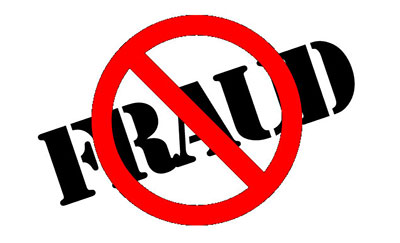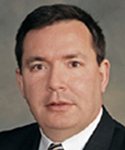Fraud Prevention and Detection in Servicing Nonprofits
by John F. Raspante, CPA, MST, CDFA, McGowanPRO –
May 3, 2022

The failure to detect fraud has been a common claim confronted by CPAs for decades. Services to the not-for-profit industry are no exception. In fact, these claims apply to non-attest services as well as attest services. In 2016, the Association of Certified Fraud Examiners reported more than 10 percent of the frauds they studied occurred in nonprofit organizations, and the average loss was $100,000.
Safeguards and Best Practices
Some of the most efficient safeguards and best practices that can be instituted to mitigate fraudulent activity are as follows:
- Send monthly fraud awareness newsletters. While they serve to be educational and informative, they are a great defense in defending claims involving failure to detect fraud in nonprofit organizations. Essentially, defense attorneys argue that the CPA made the client aware of possible frauds on a regular basis and switched some responsibility for fraud detection to the client.
- Recommend fraud examinations. Typically, clients will not engage CPAs or CFEs to provide fraud recommendations as they feel the cost is excessive and the chance of fraud is remote. However, if fraud does occur, providing evidence suggesting a fraud examination often silences the accusation of the CPA baring responsibility for non-detection.
- Gain sufficient training. CPE, education and accreditations have proven to lower the chances of not detecting fraud. While accreditations will raise the standard of care that the CPA will be held to, inevitability accreditations such as CFE will ensure proper CPE and networking with peers.
- Purchase insurance. Transferring risk to insurance and or binding companies is another measure that will protect the CPA from claims for failure to detect fraud. Crime and/or employee dishonesty coverage is advisable for all sizes of CPA firms.
Common Frauds
A review of a sample of the types of frauds orchestrated by CPA clients can help in detecting possible future frauds:
- Factious overtime. Collusion between the payroll department and the warehouse foreman has been a common fraudulent scheme.
- Ghost employees. Employees who aren’t authorized to work particular hours have had friends and family manipulate nonprofit organizations for decades.
- Ghost vendors. Ghost vendors and unauthorized vendors are common schemes used to defraud nonprofit organizations.
- Overstated confirmations of donations in-kind. To entice donors, many nonprofit frauds have had their underpinnings in overstating values for donated items such as cars and boats.
- Lavish and excessive expenditures. Not unique to not-for-profits, this scheme has been used historically by many business owners.
- Falsifying form 1023. Aiding and abetting in the preparation or assistance of a form 1023 has been detected in some frauds.
- Personal use of equipment and property. Executive directors have been noted in some frauds as users of the noncash donations received by organizations such as cars, boats and IT equipment.
- Third-party private fundraiser fraud. Smaller not-for-profits have experienced fraudulent schemes by third-party fundraisers, resulting in little of the contributions inuring to the organization.
Servicing nonprofit organizations can be both rewarding and profitable. However, CPAs must be vigilant and must always be skeptical regarding the possibility of fraud. The not-for-profit clients compose many historical frauds, and hopefully, history will not repeat itself.
 | John F. RaspanteJohn F. Raspante, CPA, MST, CDFA, is the director of risk management for McGowanPRO. He is a member of the NJCPA Accounting & Auditing Standards Interest Group and the Content Advisory Board. More content by John F. Raspante: |
The information in this guide has been gathered from many sources, including the Internal Revenue Service, the Social Security Administration, state agencies, professional organizations and members of the NJCPA. The COVID-19 pandemic has prompted the majority of state agencies to offer more online and prerecorded services. Though offices have reopened after the COVID-19 shutdown, it’s best to check online or call before you visit.
Material contained within this guide should be augmented by, and used in accordance with, a certified public accountant's professional judgment. Your CPA can properly apply the tax laws and regulations to the facts and circumstances of your particular situation. For help with locating a CPA, visit findacpa.org.
The New Jersey Society of Certified Public Accountants is not responsible for any claims arising as a result of this information or its usage.
This guide was updated in October 2023. Future users of this material are cautioned that some portions, particularly tax-related information, may become outdated.